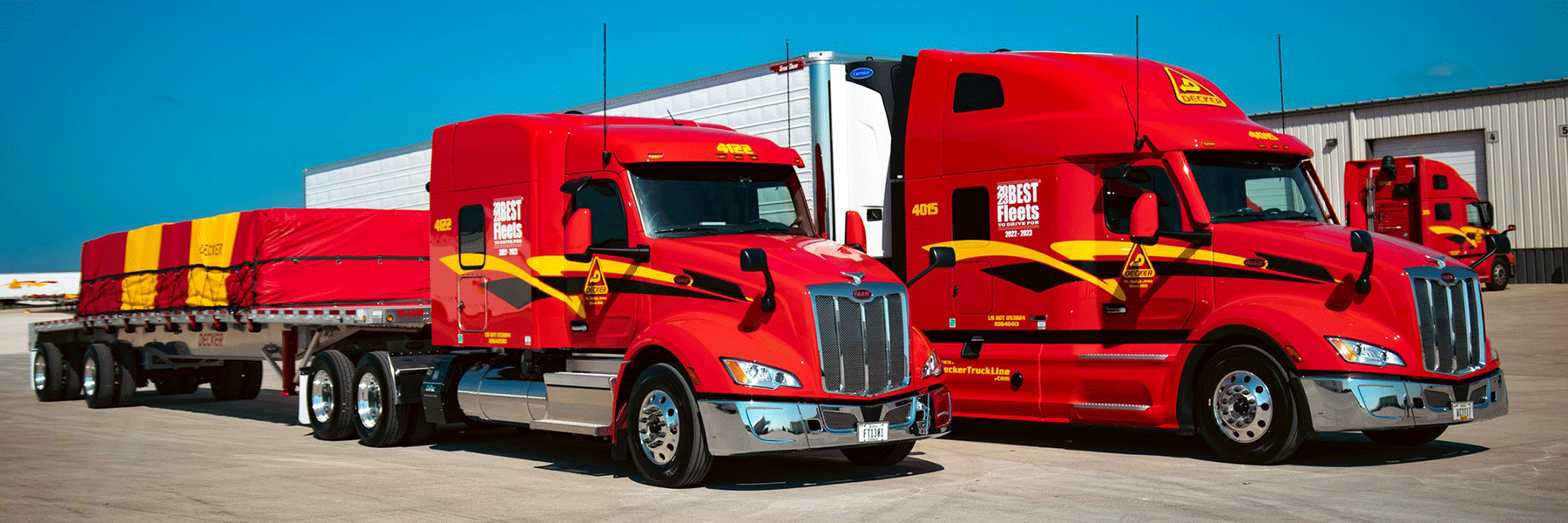Learn about the skill set needed to be a great fleet manager and how you can successfully take on this role.
A truck driver's largest responsibility is ensuring deliveries are made on time and undamaged. But they are not the only person that holds any responsibility. While behind the scene, fleet managers put in countless hours of thought, effort, and work to make it happen.
In other words, a fleet manager, also called a fleet maintenance supervisor, is a logistics specialist and an expert in the transportation industry. Fleet managers have many responsibilities that involve managing every detail, large and small, of their drivers and the company vehicles.
Managing these responsibilities is not for the faint of heart and must be handled by someone with a particular skill set, education, and training. Today we're looking at the various skills that every great fleet manager must possess.
Continue scrolling to learn more.
Education, Training, and Certification
To gain the necessary skillset and acquire a managerial-level transportation job, most fleet managers must have a high school diploma (or equivalent), a four-year bachelor's degree, along with relevant experience, is needed to acquire an entry-level transportation job. Here's a bit more on that:
Education — Fleet managers must attain a bachelor's degree from an accredited college or university with a major in business administration, logistics, accounting, or another related field. Some employers may require their managers to obtain a postgraduate degree such as a master's degree in supply chain management or an MBA.
Experience — In addition to a bachelor's degree, many employers require at least five years of successful transport management experience; ideally, this includes two or three years as a supervisor. Such experience will put a candidate on the fast track to many top fleet management jobs.
Certification — While certification is not required to enter the field, employers may have their own certification requirements.
Skillset Needed to Be a Great Fleet Manager
Here are some of the skills necessary to perform this complicated effectively:
Communication and Interpersonal Skills — A great fleet manager is an active listener, a skilled negotiator, and an effective and eloquent speaker and writer where all levels of employees and vendors are involved.
Software and Computer Skills — Great managers must be proficient in instant messaging, email, word processing, and spreadsheet applications. They must also be familiar with fleet-certain programs like supply chain software and route navigation software, and logistics.
Ability to Supervise a Team — Whether in charge of a transportation segment, transportation is the company's core business; a great fleet manager will successfully and appropriately supervise and critique the work of other employees in various roles.
Accounting and Finance Literacy — A great manager must thoroughly understand how to read balance sheets and establish and maintain a departmental and fleet budget.
A great fleet manager is also responsible for increasing profits and reducing costs.
Understanding of Applicable Laws and Regulations — Great fleet managers are well-versed in and thoroughly understand the environmental and safety laws, regulations, and rules of the U.S. Department of Transportation related to their department and team members.
Knowledge of What is Going on Under the Hood — A great manager needs to understand truck systems, technology, and mechanics sufficiently, allowing them to authorize repairs accurately and adequately evaluate the work of employees involved in necessary repairs and maintenance.
More Necessary Skills of a Great Fleet Manager
- Know how to manage drivers' schedules.
- Have an analytical mindset.
- Possess strong problem-solving skills.
- Be good at critical thinking.
- Have an attention to detail to ensure records are kept as needed.
- Know how to handle escalated customer service issues.
- Have excellent training and teaching abilities and can provide constructive criticism to team members.
- Have strong decision-making skills.
- Have excellent organizational skills and business management skills.
- Be understanding, compassionate, and empathetic towards their fleet.
An Important Skill of a Great Fleet Manager
One of the most important skills a great fleet manager can possess is prioritizing their drivers' safety, health, and wellness. This skill includes promoting a healthy work-life balance and positive mental health.
There's no denying that life on the road can be challenging and take a toll on a driver's well-being. Here are some ways a great fleet manager can prioritize this:
Encourage Fleet Interaction — Get your fleet engaging with one another on their radios. Frequent small talk or sharing stories can help combat loneliness.
Communicate With Their Loved Ones — Encourage communication with friends and family back home. Ensure they are taking regular breaks so they have the opportunity to check in with a quick text or phone call, or equip your trucks with Bluetooth technology so they can talk while they're behind the wheel.
Watch TV — Being mentally and physically alone is hard, but watching television can help fulfill the need for human connection and interaction.
Want to Be a Great Fleet Manager? Equip Your Trucks with EpicVue!
While it's not on the mandatory list of the skillset needed to be a great fleet manager, equipping your trucks with EpicVue is a fantastic way to let your crew know you care!
Outfitting your fleet with premium in-cab satellite televisions allows your team members to have a bit of home away from home. They can sit back, relax, and watch TV in the comfort of their trucks.
This gesture will show your crew appreciation, and in return, many fleet managers receive loyalty, making these benefits well worth the small investment! Whether part of a fleet or an owner-operator, EpicVue is an excellent addition to your vehicle.
Watching TV while away from friends and family can help offset the feelings of isolation and loneliness. It is also a great way for drivers to relax during mandatory rest times.
With more than 180 premium challenges, truck drivers can easily find something they want to watch, regardless of their preferences.
Contact our team to learn more about EpicVue today!



